The history of fat burner supplements is a long and winding one. They have their roots in the early days of bodybuilding, when athletes were looking for any edge they could get to help them build muscle and lose fat. In the early days, fat burners were mostly just stimulants like caffeine or ephedrine. These substances would give the user a boost of energy, which would help them to train harder and for longer periods of time.
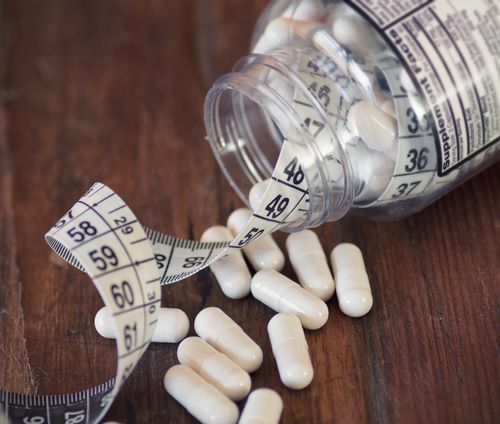
Over the years, fat burners have become more sophisticated. They now contain a variety of ingredients that are designed to target different aspects of fat loss. Some fat burners will boost metabolism, while others will suppress appetite or promote the breakdown of fat cells. There are even fat burners that contain ingredients that claim to block the absorption of fat.
Fat Burners: The Early Years
I would say people have been trying to lose weight since the beginning of time but we all know there were the bigger was better. From around the year 1500 to the year 1900 thin was not in, people liked a more “husky” look if you will. Some may even call it plump.
This is likely the reason there was no such thing as a weight loss pill until the late 1800s.
1800s
In the late 1800’s they came out with what they called “fat reducers”. They used thyroid extract to increase your metabolic rate. While the fat reducers were thought to be effective they were also loaded with side effects like hyperthyroidism, abnormal heartbeats, increased heart rate, high blood pressure and even death. Even with these side effects, these types of fat reducers were used up until the 1960s.
1920s
In the 1920s people started using laxatives for weight loss which doesn’t really work, especially not long term. Gimmicky weight loss products also emerged.
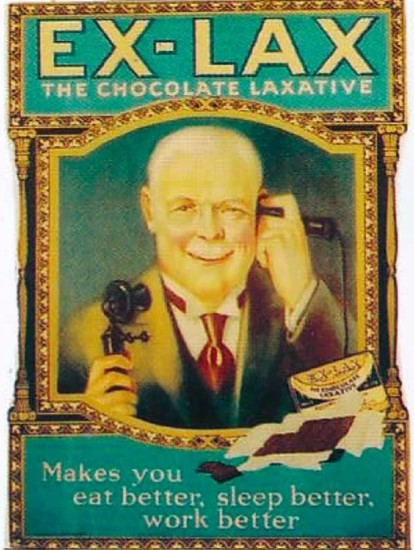
1930s
In the 1930s a drug called dinitrophenol became popular for fat loss. It increased your body temperature so you would burn more calories. Unfortunately, dinitrophenol also caused side effects like blindness, cataracts, and death.
1940s-1950s
In the 1940s and 1950s amphetamines became popular for fat loss. They were effective but had a long list of side effects like dependence, psychosis, and death which isn’t good.
An appetite suppressant candy called Ayds was also introduced in the 40s. This candy used benzocaine, the same ingredient in Orajel to numb your mouth so you couldn’t taste it and would eat less. The candy was actually around until the 1980s when the AIDS epidemic started and the candy got its name confused with AIDS and eventually, they went out of business.
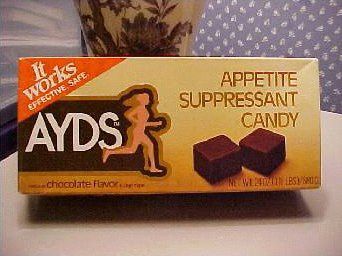
In the 1950s amphetamines became more popular. They were given to soldiars in WWII to keep them alert and also given to truck drivers to help them stay awake. One side effect was appetite suppression which led to weight loss. Unfortunately, it also came with a laundry list of side effects and risks of abuse.
1960s-1970s
The 1960s and 1970s were the years of fad diets like the grapefruit diet, tapeworm diet and the baby food diet just to name a few. People were looking for any way to lose weight quickly.
In 1967 a fat burner called Dexatrim was introduced and it actually contained Phenylpropanolamine which is still used in some weight loss supplements today. There is also a long list of fat burners that use Phen in the name, though many of them do not use Phenylpropanolamine, most are just trying to capitalize off of the name.
1980s-1990s
The 1980s and 1990s were the years of ephedra fat burners. Ephedra was a popular ingredient because it was effective but also had a long list of side effects.,
Ephedrine is a stimulant that is derived from the plant species Ephedra sinica. It works in a similar way to caffeine, by stimulating the central nervous system. However, ephedrine has a much stronger effect than caffeine and can also lead to side effects such as increased heart rate and blood pressure.
Ephedra worked though, and fat burners containing this ingredient were very popular in the early 2000s. Ephedrine was eventually banned by the FDA due to concerns about its safety.
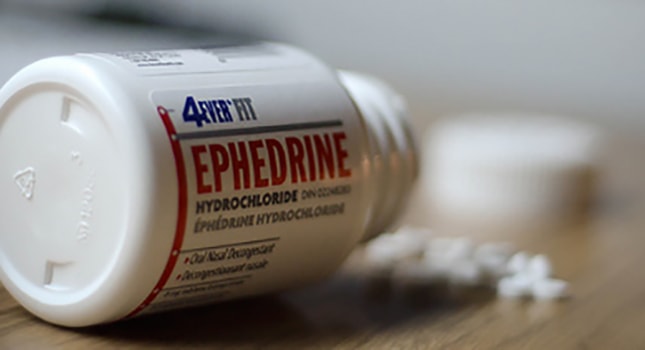
Side Effects from Ephedra Included:
- High blood pressure
- Increased heart rate
- Nervousness
- Insomnia
These side effects were bad enough that by 2004 the FDA had received over 18,000 complaints from Ephedrine users. Though, most of these complaints involved people that were taking too much Ephedrine or were mixing it with things they shouldn’t have been like alcohol or even ecstasy which isn’t a great idea.
Then several people died from taking Ephedrine including Steve Bechler, a 23-year-old pitcher for the Baltimore Orioles. Ephedrine was banned by the FDA and it is also banned by all major sports leagues.
Nowadays the only way you can get your hands on Ephedrine is in certain asthma and allergy medications and those aren’t even that easy to get since people make meth out of it and it’s regulated.
In 1998 is also put out onto the market but it would be removed from the market in 2009 over concerns that it could raise blood pressure and cause stroke or heart attack.
2000 The Rise of Thermogenics
In the last few years, thermogenic fat burners have become increasingly popular. These fat burners work by increasing the body’s internal temperature. This causes the body to burn more calories in order to cool itself down. Thermogenic fat burners usually contain ingredients such as caffeine, green tea extract, and capsaicin.
Do New Fat Burners of Today Work Better Than The Old Ones
Probably not, many of the ones in the past worked well, the problem was they were also loaded with side effects. Today’s fat burners are a good combination of being effective and having fewer side effects than those from years past.
Today’s fat burners generally do come with side effects though unless you go with a stimulant-free fat burner, those are your best chance to avoid side effects.
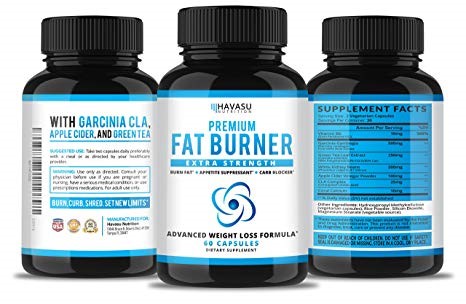
Are Todays Fat Burners Safer Than The Old Ones?
Yes, while many of today’s fat burners aren’t without side effects they are definitely safer than the weight loss supplements of years past. This is due to a better understanding of how fat burners work and what ingredients are safe to use.
Do Today’s Fat Burners Work Better Than Exercise and Diet?F
No fat burner is going to be as effective as a good diet and exercise plan. However, good fat burners can help to give you that extra edge. They can help you to lose those last few stubborn pounds or help you to break through a weight loss plateau.
Just remember fat burners are not magic pills, they are just supplements that can help you on your weight loss journey.
Do Fat Burners Work?
The jury is still out on whether or not fat burners are effective. There is some evidence to suggest that they can help to boost metabolism and promote fat loss. However, the majority of fat burner studies have been inconclusive.
Many fat burners also contain stimulants that can lead to side effects such as increased heart rate and jitters. If you are considering taking a fat burner supplement, it is important to speak with your doctor first to ensure that it is safe for you.
Final Words
Fat burner supplements have come a long way since they were first introduced in the early 1900s. Today, there are many different fat burners on the market that contain a variety of ingredients.
While fat burners may not be the miracle weight loss solution that some people claim them to be, they can be a safe and effective way to boost metabolism and promote fat loss.

Ryan is a former college wrestler and lifelong fitness fanatic with over 25 years in the industry. He’s run half marathons, tackled mud runs, placed in body transformation contests, and coached everything from wrestling to girls’ soccer.
Along the way, he’s tested hundreds of supplements and built a deep well of supplement knowledge. His work has appeared in Muscle & Strength, Testosterone Junkie, The Sport Review, and more. Today, he’s the editor-in-chief of this site, still training hard and helping others reach their goals. Connect with him on LinkedIn below.

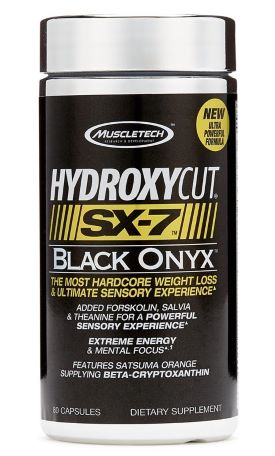



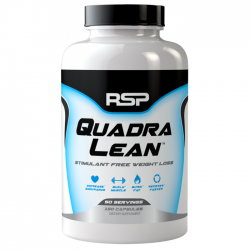

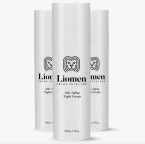

Be the first to comment